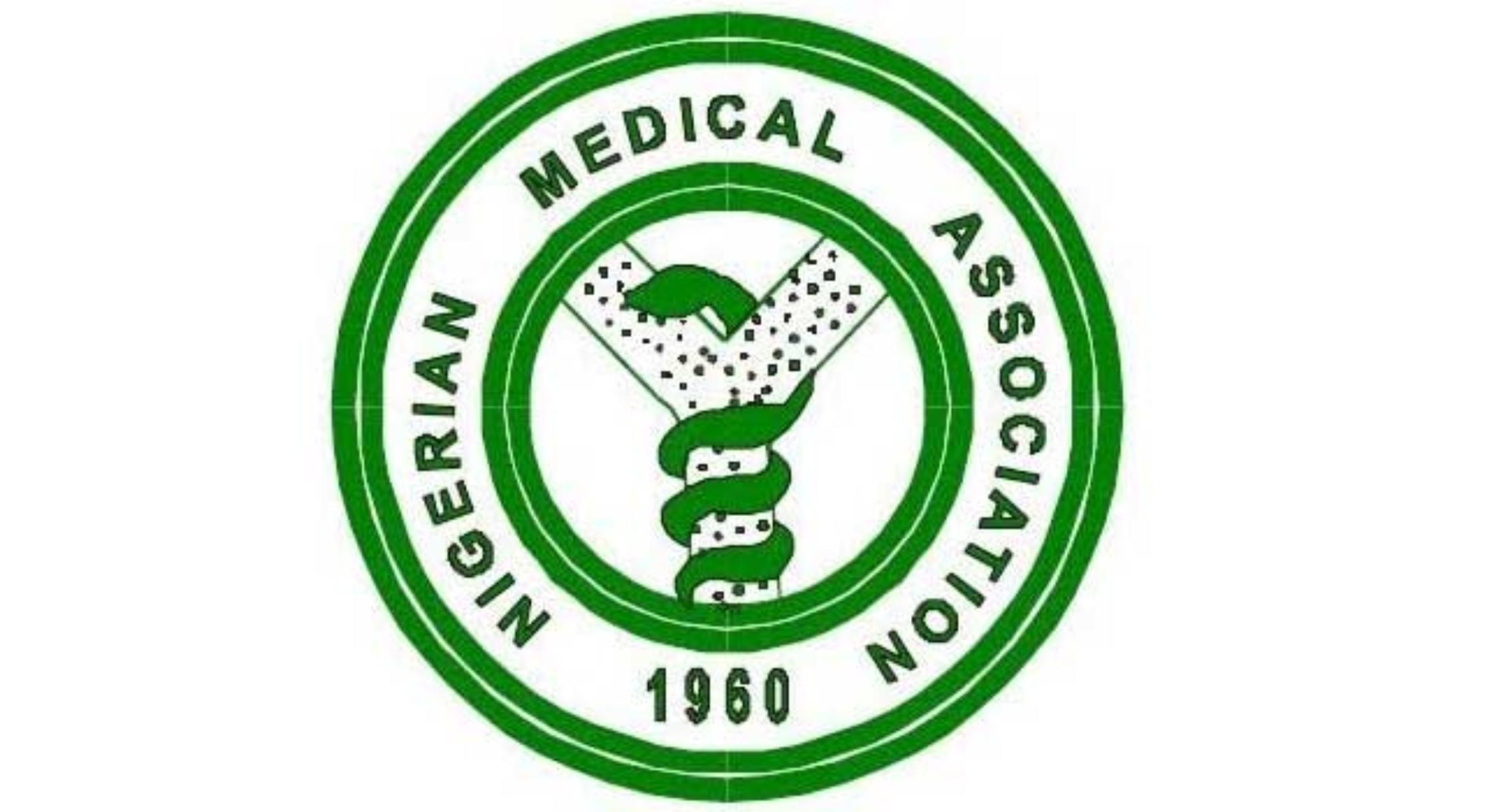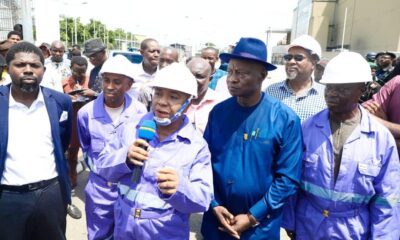Business
Investors’ Sentiment Boosts Trading On NSE
The improved inves
tors’ sentiment on the floor of the Nigerian Stock Exchange (NSE) resulting to the market ending in the green last week surged the twin market indicators, the All Share Index (ASI) and the aggregate market capitalization of listed equities surged by 1.24 per cent each.
Specifically, the ASI closed the week at 37,382.49 basis points from an index-on-board of 36,926.29 basis points even as the market capitalisation of listed equities increased from the week’s opening value of N11.694 trillion to N11.839 trillion.
The NSE 30 index which tracks the most capitalised stocks on the Nigerian bourse appreciated by 1.05 per cent to finish at 1,758.73 points.
Also four of the NSE indices were in the green during the review week as the NSE Consumer Goods rose by 0.75 per cent, NSE Banking 1.34 per cent, NSE Insurance 0.37 percent and the NSE Industrial goods 3.34 per cent.
However, the NSE Oil/Gas, NSE-Lotus I and the NSE-ASeM nose dived by 0.14 per cent, 0.02 percent and 0.57 per cent, respectively.
A closer look at the market revealed it rebounded last week as the bulls took charge of the market for three days running resulting to a 2.18 per cent appreciation pushing the value-based index that tracks all equities to hover between 35,832 points and 36,952 points.
The week opened on Monday of the review week on a negativenote, as the NSE ASI fell by 0.37 per cent to close at 36,796.14 basis points having opened at 36,926.29 basis points the previous week while cumulative market capitalisation of listed equities dropped by N44 billion to close at N11.650.87 trillion compared with N11.694.95 trillion the previous week.
The second trading in the week under review saw the benchmark index rising by 0.61 per cent which caused the index to finish at 37,014.14 basis points even as the market capitalisation stood at N11.56 trillion.
The overall market volume traded on the same day increased by 53.4 per cent just as increased by 53.4 per cent just as the value grew by 50.8 per cent.
In all, a total of 289.25 million units of shares valued at N324 billion were exchanged by investors in 5,081 deals.
The positive note continued on Wednesday with the NSE ASI soaring by 0.31 percent to finish at 37,128.40 basis points while market capitalisation of listed equities added N36 billion to close at N11,758.27 trillion from an on-board-value of N11.722.08 billion.
The market, last Wednesday recorded a traded volume of 213.24 million units of shares worth N3.22 billion exchanging hands in 5,815 transactions down from 289.25 million units of shares valued at N3.24 billion traded in 5,419 deals the previous day.
The bulls sustained their hold in the equity market of the Nigerian bourse on Thursday with the bench mark index adding 199.26 points to end at 37,327.66 basis points as 34 stocks recorded price appreciation while 16 lost in their value.
The last trading day of the week under review saw the market finishing on a strong note as the bench mark index went up by 0.15 per cent to stand at 37,382.49 basis points while the aggregate market capitalisation of listed equities rose to N11.72 trillion.
A traded volume of 245.96 million units of shares valued at N2.94 billion were recorded at the close business on the Exchange on Friday.
The overall turnover volume during the review week stood at 1.674 billion units of shares valued at N18.266 billion exchanged by investors in 25.367 trades as against a total of 3.478 billion units of shares worth N14.902 billion that exchanged hands the previous week in 24,576 trades.
In volume terms according to the NSE weekly data, the financial services sector topped the sectorial activity chart with 1.306 billion units of shares worth N11.630 billion exchanged by investors in 13,565 trades.
The Banking subsector of the financial services sector was the most active in volume terms during the review week. Activities in the shares of United Bank for Africa Plc, Guaranty Trust Bank Plc and Access Bank Plc drove the volume in the subsector as they accounted for 735.184 million units of shares representing 77.68 per cent and 43.91 per cent of the turnover volume recorded by the subsector and the overall market turnover during the week under review respectively.
The Conglomerates sector emerged second on the week’s activity chart having a turnover of 101.851 million units of shares at the cost of N278.921 million in 1,077 trades.
Activities in the shares of Transnational Corporation of Nigeria Plc drove the volume in the sector as 98.150 million units of its shares were traded by investors in 727 transaction at the value of N137.029 million.
At the over-the-counter bond market, a total of 4,100 units of FGN bonds worth N443,665 were traded in 18 transactions as against 900 units at the value of N100,126 recorded in 19 trades the preceding week.
On the Price Movement chart, 37 stocks appreciate in their value during the week in contrast to 44 shares which recorded price appreciation the previous week.
A total of forty-seven shares dipped in their value compared with 36 shares that plunged in their value the previous week.
Mobil Oil Nigeria Plc vanguard the top 10 bulls with N10.71, Julius Berger Nigeria Plc N5.02, UACN Plc N4.00, Ecobank Transnational Incorporated N1.11, Beta Glass Company Plc N1.00.
Other top 10 price gainers for the week include IPWA Plc 19 kobo, HIS Plc 60 kobo, Ikeja Hotel Plc 7 kobo, National Salt Company of Nigeria Plc 91 kobo and Dangote Sugar Refinery Plc 84 kobo.
On the downside, the top 10 losers were Glaxo Smthkline N12.73, Costain West Africa Plc 24 kobo, Smart Product Nigeria Plc 20 kobo, Coulterville Business Solution Plc 18 kobo, NPF Microfinance Bank Plc 12 Kobo, Trans-Nationwide Express Plc 25 kobo, Vono Product Plc 17 kobo, Chellarams Plc 48 kobo, Thomas Wyatt Nigeria Plc 11 kobo and Transnational Corporation of Nigeria Plc 16 kobo.
Business
Eazipay Offers Zero-Interest Loans To 150,000 SMEs, Employees

With a mission to ignite growth, encourage business continuity and help businesses and employees thrive, Eazipay is gearing up to propel the dreams of 150,000 SMEs and employees to new heights through her relief fund.
Gone are the days of financial constraints and stifled dreams. With Eazipay’s support, SMEs and employees alike can bid farewell to limitations and embrace a world of endless possibilities.
Whether it’s start up, business expansion or personal development, Eazipay is here to make dreams come true.
The mind-blowing initiative, which kicked off this month, would end in December, and will also offer a range of perks and benefits designed to put a smile on the faces of SMEs and employees alike.
From exclusive discounts to various advisory services and beyond, Eazipay is committed to spreading happiness and creating lasting impact in people’s lives and to the growth of businesses.
The technology company which offers products and services that range from payroll management to IT/Device management and assessments, “Eazipay isn’t just providing financial support but also unleashing a wave of growth and prosperity for SMEs and employees across the nation.
“Interested businesses and individuals can take part in this initiative directly from the Eazipay website: www.myeazipay.com”.
Business
SMEs Critical For Sustainable Dev – Commissioner

The Commissioner of Finance, Lagos State, Abayomi Oluyomi, has described Small and medium Enterprises (SMEs) as a critical engine for sustainable development in any economy.
He said this recently at the 10th anniversary of the Alert Group Microfinance Bank and the opening of their new head office in Lagos.
According to the National Bureau of Statistics, SMEs accounted for about 50 per cent of Nigeria’s gross.
He commended the positive impact of the Alert MFB as it empowers SMEs in the State.
“Alert MFB in the past 10 years has been at the forefront of empowering SMEs in Lagos State, disbursing over N30bn in loans to over 30,000 individuals having small to medium businesses over that period, which is quite remarkable”, he said.
Speaking, the Group Managing Director of Alert Group, Dr Kazeem Olanrewaju, revealed that the financial institution commenced business in 2013 as a microfinance bank.
“We started this journey in 2013 and it has been expanding. Today, they have about 10 branches across Lagos. They have supported well over 30,000 clients and have disbursed over N30bn.
“The company has been profitable since the second year. Looking at the market and the available opportunity, the Alert MFB board decided to come together to establish a Microfinance Institute (MFI), which is the Auto Bucks Lenders”, Dr. Olanrewaju said.
The GMD further stated that the company was focused more on supporting businesses and small and medium enterprises.
“The loan to support business represents over 98 per cent. The consumer loans you will see are the ones given to entrepreneurs. So, the area of focus of Alert MFB and Auto Bucks Lenders is to support businesses across the country.
“With the establishment of Auto Bucks Lenders, we have the opportunity to also do business outside Lagos. So, presently, we have offices in Ogun State and Oyo State. We intend to go to every part of Nigeria to support what we are doing”, he declared.
Business
Retailers Explain Price Drop In Cement Cost

The cement market, in the last couple of weeks, has seen a significant turnaround with prices tumbling from between N10,000 and N15,000 per 50kg bag to between N7,000 and N8,000.
The sudden rise in the prices of cement and other major building materials in February this year upsets the construction industry, especially in real estate, where many developers were forced to abandon building sites.
A recent market survey conducted by The Tide’s source in different locations across the country confirmed a price drop, ranging between N7,000 and N7,500 per bag, though BUA cement is selling for N7,500 to N7,800 per 50kg bag, depending on location.
Both entrepreneurs and major distributors who were interviewed, explained that the price drop is due to low demand and government’s intervention.
At the peak of the price hike, the Federal Government called a meeting with major producers where it was agreed that a bag of cement should be between for N7,000 to N8,000, depending on location.
But the producers did not comply with this agreement immediately, followin which “Nigerians stopped demanding for cement; many project sites were abandoned as developers sat back and waited for the prices to come down.
“So, what has happened is an inter-play of demand and supply with price responding, which is Economics at work”, Collins Okpala, a cement dealer, told the source in Abuja.
In the Nyanya area of the Federal Capital Territory, a 50-kg bag of Dangote cement now sells for between N7,000 and N7,500, while BUA cement sells for between N8,500 and N9,500, down from between N11,000 and N12,000 respectively.
In Lagos, the product has seen significant price drop too. In Ojo area of the state, Sebastin Ovie, a dealer, told our reporter that what has happened is a crash from the January price, attributing the crash to low demand and stronger naira.
“The current price of the product is between N7,000 and N7,500 per 50kg bag, depending on the brand. This is a significant drop from the average of N12,000 which most dealers were selling in February and March”, he said.
A dealer in Agege area of the state who identified himself as Taofik Olateju, told the source that sales are picking up due to the drop in price.
He recalled that Nigerians at a point stopped buying due to the high price of the product at N15,000 per bag.
“I am sure most dealers ran at a loss then because we had mainly old stocks which we wanted to offload quickly”, he said, confirming that the product sells for between N7,500 and N8,000, depending on the brand and the demand for the brand.
Continuing, Olateju noted that “because the naira is now doing well against the dollar, it will be unreasonable for manufacturers to continue to sell the product at the old prices. I also believe that the federal government’s intervention and the threat to license more importers may have worked, leading to the reduction in price”.
In Enugu, the source reports that the product sells for between N7,200 and N7,500 depending on the brand and location.
“This is a city where the price of a 50kg bag went for as high as N12,000 and N13,000 in some cases in February and March”, Samuel Chikwendu said.
He added that the prices of other building materials, especially iron rods, have also dropped considerably which is why, he said, activities are picking up again at construction sites.
The story is slightly different in Owerri, the capital of Imo State, where Innocent Okonkwo told the source that low demand was also driving the price drop, adding that a 50kg bag was selling for N9,000 on the average in the state.
Sundry market observers are optimistic of further price reductions, but they remain cautious as manufacturers, wholesalers, and retailers continue to play critical roles in setting prices for end-users.
They lamented, however, that despite Nigeria’s status as one of the largest producers of cement in Africa, the price of the product continues to rise, particularly in the face of high inflation impacting the building materials market generally.
Okpala in Abuja highlighted the variations arising from direct sourcing from manufacturers versus procurement through dealers, with traders holding old stocks selling products at prices ranging from N8,500, N8,300 to N8,000 per bag.
Lucy Nwachukwu, another dealer in Abuja, said the significance of procurement volume in determining cement costs, noting that stability in prices has been observed over the past month, with the product retailing for between N7,000 and N7,800 depending on the brand.
In Port Harcourt also, a customer, Daniel Etteobong Effiong, said the price goes between N7500 to N8500, depending on the brand and the location one is buying from.
-

 Niger Delta3 days ago
Niger Delta3 days agoRSG Seals Two Hospitals In Bonny …Set To Inaugurate Anti-Quackery Committee
-
Entertainment3 days ago
Davido Narrates How His Song Became President’s Ringtone
-

 News3 days ago
News3 days agoN5.2trn Debt: FG Recovers N57bn From 10 MDAs
-

 Editorial3 days ago
Editorial3 days agoThat Odili’s Health Centre Gesture
-

 News3 days ago
News3 days agoBonny-Bodo Road: FG Offers Additional N20bn, Targets December Deadline
-
Business3 days ago
Nigeria Set To Get $2.25bn World Bank Loan … Plans Diaspora Bond
-

 Niger Delta3 days ago
Niger Delta3 days agoMile One Market: Committee Commences Verification Exercise …Denies Allocations Of Shops
-
Sports3 days ago
Chairman Lauds NPFL Referees Improvement

